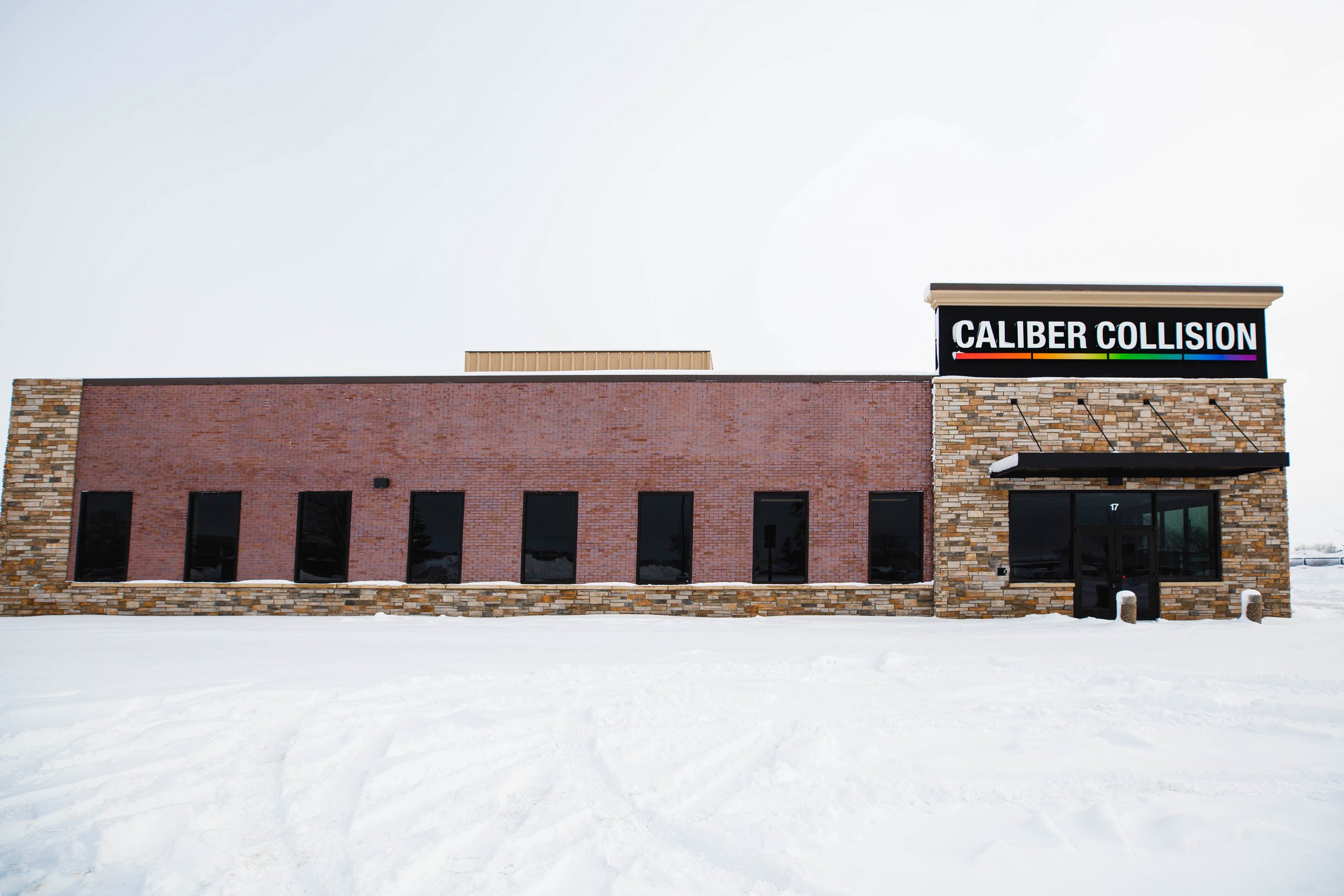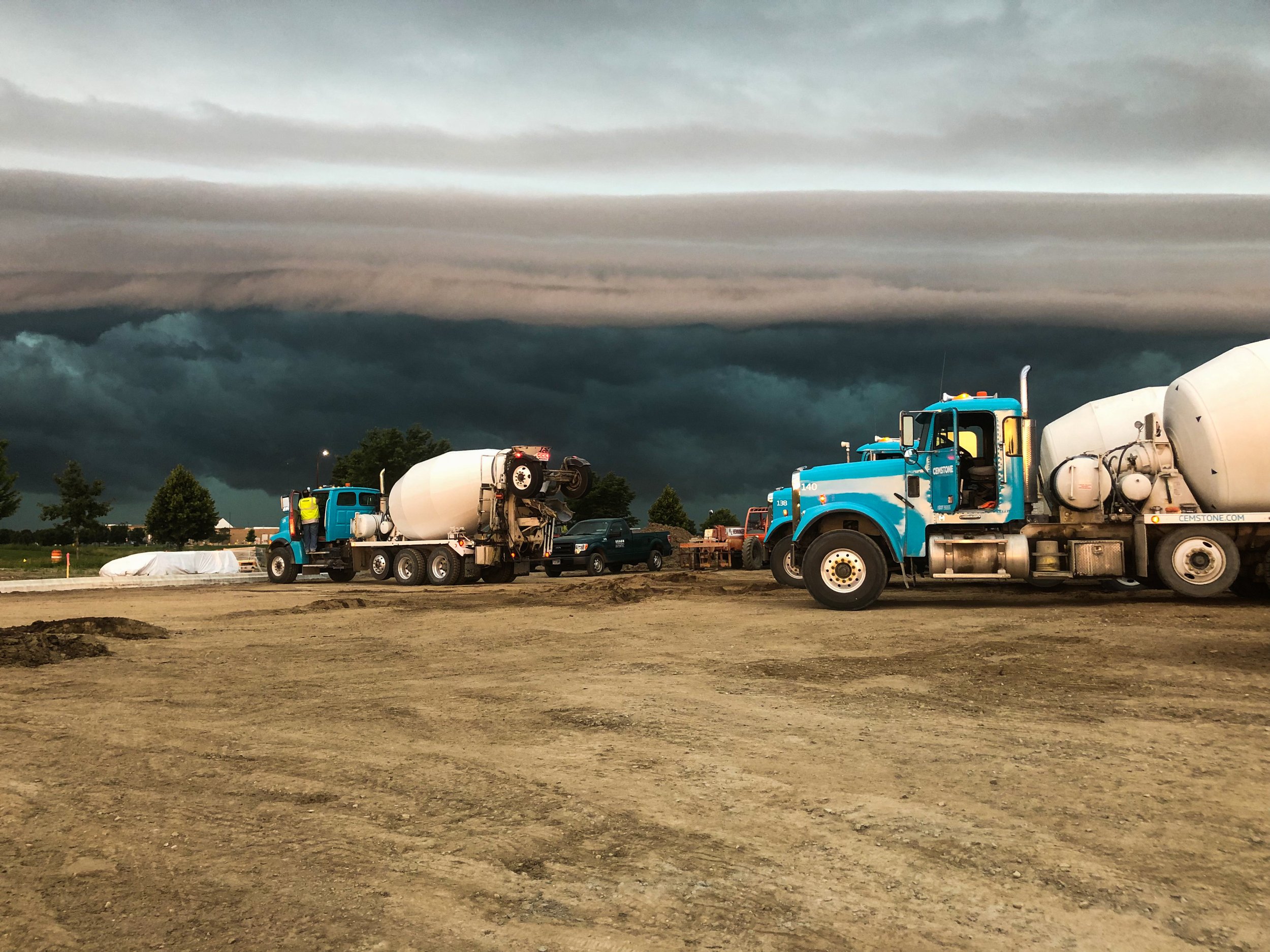
THE WEATHER + CONCRETE
The Impact of Weather Conditions on Commercial Concrete Construction
Weather plays a crucial role in the success and longevity of commercial concrete projects. The diverse range of weather conditions, from extreme temperatures to rain, snow, wind, and more, can significantly impact the quality and durability of concrete structures. Understanding these effects is essential for contractors, architects, and project managers to ensure successful outcomes. Below, we explore the various ways weather conditions can influence commercial concrete construction and discuss strategies to reduce their impact.
The Role of Temperature
Extreme temperatures, both hot and cold, can lead to issues such as improper curing, reduced strength, and increased cracking. Optimal temperature ranges exist for concrete placement and curing, and it is crucial to follow them to achieve desired results. As your professional concrete contractor, we carefully monitor and regulate temperature conditions during concrete placement, taking appropriate measures to prevent adverse effects and ensure proper curing.
Dealing with Moisture + Rain
Moisture and rain pose significant challenges during concrete construction. Rainwater can damage freshly poured concrete, leading to weakened structures and surface defects. Proper curing techniques, such as covering the concrete and using curing compounds, are vital to protect the surface from excess moisture and prevent water-related damage. Additionally, controlling moisture levels during the construction process is crucial for maintaining the integrity and strength of the concrete.
Winter Construction Challenges
Cold weather presents unique challenges for commercial concrete projects and living in the midwest brings no shortage of extremely cold temperatures. Freezing and thawing cycles can cause significant damage to concrete, resulting in cracking and reduced structural integrity. Contractors must implement effective insulation and heating techniques to protect concrete during winter construction. Blankets, insulating materials, and the use of accelerators can help maintain appropriate temperatures and prevent freezing-related issues.
Hot + Dry Climate Considerations
In hot and dry climates (or the increasingly hot midwest summers), high temperatures and low humidity can lead to rapid evaporation and shrinkage of the concrete. We employ hydration control techniques and use curing methods such as fogging or damp curing to combat the effects of hot weather. Adequate hydration and proper curing play a crucial role in preventing cracking and ensuring the long-term durability of concrete structures in arid conditions.
Wind + its Effects on Concrete
Wind can significantly impact the concrete placement and finishing processes. Strong winds can cause surface defects, erosion, and segregation of concrete ingredients. Taking preventive measures such as using windbreaks, windshields, or wind-reducing additives to protect freshly poured concrete is essential. Proper planning and execution are essential to minimize the negative effects of wind during construction.
Our Approach to Reducing the Impact of Weather on Concrete Projects
Weather conditions have a profound impact on commercial concrete construction. Temperature, moisture, rain, wind, and other weather factors can influence the quality, strength, and durability of concrete structures. By understanding these effects and implementing appropriate strategies, as your commercial concrete contractors, we can mitigate risks and ensure successful outcomes. Weather-aware construction practices, including temperature monitoring, moisture control, and wind protection, are crucial for achieving long-lasting and reliable commercial concrete projects are something we strive to stay on the cutting edge of.
By partnering with experienced commercial concrete contractors who possess the knowledge and expertise to navigate weather-related challenges, such as Evenson Concrete Systems, you can ensure the highest quality craftsmanship and reliable construction practices.
Protecting your finished concrete from the elements is just as important as protecting your budget and timelines. Don’t let bad weather damage your concrete architecture or set you back on time and money. Contact us today to learn more about our approach to handling weather conditions during your project.

